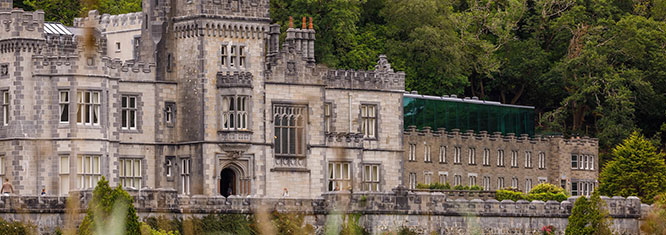Catholic Social Thought and University/Community Engagement: Rooting in the Tradition for Effective Transformation
Abstract
Catholic higher education has a long history of community engagement, dating at least to the early 1900s in North America and continuing into the present (Fitzgerald, 2013). In Ex Corde Ecclesia, Pope John Paul II called on every Catholic university “to discover the roots and causes of the serious problems of our time… [and] to contribute concretely to the progress of the society within which it works” (ECE: 32,34). More recently, Pope Francis has called for the integration of the Church’s work for social justice into Catholic higher education, claiming, “It is not enough to analyze and describe reality; there is a need to shape environments of creative thinking… [to] develop alternatives to current problems, especially today ” (2015).
While Catholic institutions clearly have a long-standing history of service to their communities, less has been done to critically examine how Catholic social thought may be able to ground, and critically inform, the practice of engaged scholarship on Catholic campuses. What does Catholic social teaching have to say to about the choice, and structure, of university-community partnerships? How does the tradition speak to the planning, implementation and assessment of community-based research and teaching? What are the critical questions that should be asked – of community impact goals, epistemological frameworks, student learning outcomes, and institutional policies – if university-community engagement is to embody the best of the Church’s long-standing thought on social change?
This session aims to explore these questions by providing grounding in the theoretical context of Catholic social thought and entering into dialogue with critical models of university-community engagement within the secular field of engaged scholarship. Drawing on the work of Howard (2001) we propose to explore the four major outcome areas of engaged scholarship in light of Catholic social tradition: That is, 1) Community Impact; 2) Academic Learning; 3) Inter/Intra-personal learning (including moral and spiritual formation); and 4) Institutional Impact. The ultimate goal is to explore what might be constitutive hallmarks of a community-engaged campus truly rooted in the Catholic social tradition.
Catholic Social Thought and University/Community Engagement: Rooting in the Tradition for Effective Transformation
Catholic higher education has a long history of community engagement, dating at least to the early 1900s in North America and continuing into the present (Fitzgerald, 2013). In Ex Corde Ecclesia, Pope John Paul II called on every Catholic university “to discover the roots and causes of the serious problems of our time… [and] to contribute concretely to the progress of the society within which it works” (ECE: 32,34). More recently, Pope Francis has called for the integration of the Church’s work for social justice into Catholic higher education, claiming, “It is not enough to analyze and describe reality; there is a need to shape environments of creative thinking… [to] develop alternatives to current problems, especially today ” (2015).
While Catholic institutions clearly have a long-standing history of service to their communities, less has been done to critically examine how Catholic social thought may be able to ground, and critically inform, the practice of engaged scholarship on Catholic campuses. What does Catholic social teaching have to say to about the choice, and structure, of university-community partnerships? How does the tradition speak to the planning, implementation and assessment of community-based research and teaching? What are the critical questions that should be asked – of community impact goals, epistemological frameworks, student learning outcomes, and institutional policies – if university-community engagement is to embody the best of the Church’s long-standing thought on social change?
This session aims to explore these questions by providing grounding in the theoretical context of Catholic social thought and entering into dialogue with critical models of university-community engagement within the secular field of engaged scholarship. Drawing on the work of Howard (2001) we propose to explore the four major outcome areas of engaged scholarship in light of Catholic social tradition: That is, 1) Community Impact; 2) Academic Learning; 3) Inter/Intra-personal learning (including moral and spiritual formation); and 4) Institutional Impact. The ultimate goal is to explore what might be constitutive hallmarks of a community-engaged campus truly rooted in the Catholic social tradition.


